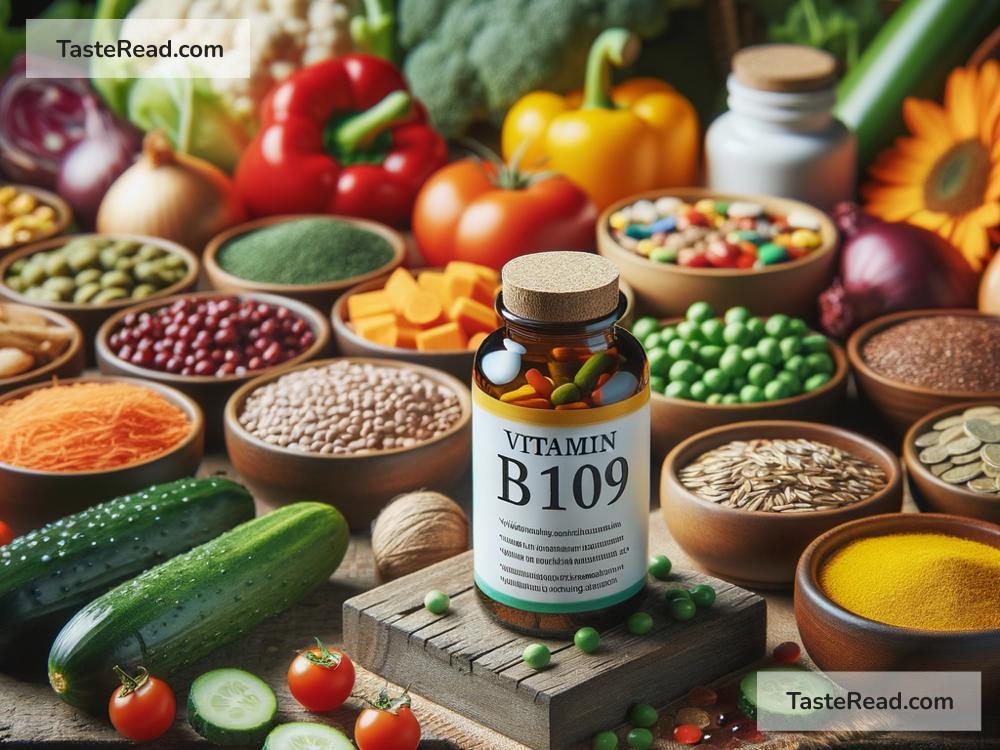The Role of Vitamin B109 in Metabolic Health
There’s no denying that vitamins play a big role in keeping us healthy. Over the years, some vitamins have hogged the spotlight—Vitamin C for boosting immunity or Vitamin D for bone strength, for example. But recently, there’s been talk about a lesser-known vitamin: Vitamin B109. While it may sound a bit futuristic, Vitamin B109 is being explored for its potential impact on metabolic health. In this blog post, we’ll break it down in simple terms, discussing what it is, why it matters, and how it might help with vital metabolic processes.
Wait—Is Vitamin B109 Even Real?
Before we dive in too deep, let’s address the elephant in the room. Vitamin B109 isn’t an officially recognized vitamin. It’s not part of the established B-vitamin family (like B6, B12, or folate). “Vitamin B109” may have come up as a term in experimental research or as a nickname in certain circles speculating about new compounds. If you’ve heard about Vitamin B109, it’s likely due to its mention in studies about how certain compounds or micronutrients help the body’s metabolism. While it’s not a genuine vitamin as of yet, we’ll use the term for simplicity in explaining this emerging area of research.
What Is Metabolism Anyway?
To understand why researchers are paying attention to Vitamin B109, let’s take a quick look at metabolism. Your metabolism involves all the chemical processes in your body that turn food into energy. You use this energy for things like moving, breathing, thinking, and repairing cells. Metabolism also helps break down fats, carbohydrates, and proteins from food so your body can absorb and use them.
When your metabolism isn’t working properly, you might experience things like fatigue, weight changes, high blood sugar, or other health problems. This is where nutrients, including vitamins, come into play—they help fuel and support metabolic processes.
How Does Vitamin B109 Fit In?
Scientists have been curious whether compounds labeled under the term “Vitamin B109” might improve how our bodies handle energy. For instance, it’s believed that it could have a role in supporting enzymes needed for breaking down nutrients like carbohydrates and fats. Enzymes are like little workers in your body that speed up chemical reactions. Without them, your metabolism would grind to a halt.
Early studies suggest that Vitamin B109-like substances might be helpful in improving the efficiency of these reactions. In theory, they could reduce the buildup of waste products and make energy production smoother. That might result in benefits such as:
- Better Energy Levels: If your body can process food more efficiently, it’s less likely you’ll feel sluggish.
- Metabolic Balance: A more stable metabolism could help prevent spikes in blood sugar or issues tied to insulin resistance, which is often linked to type 2 diabetes.
- Weight Management: While no vitamin is a magic solution for weight loss, supporting metabolism might make it easier to maintain a healthy weight.
Current Research and Challenges
While the potential role of Vitamin B109 in metabolic health sounds amazing, it’s important to note that research is still in the early stages. Scientists are learning about these compounds, testing their effects in laboratory studies, and figuring out how they interact with the human body.
There are also challenges in categorizing something as a vitamin. A compound needs to have a proven essential role in human health—it must be something our bodies can’t produce on their own but need for survival. At this time, Vitamin B109 might not meet these criteria, so it remains more of a research term than a health guideline.
Another issue is whether any Vitamin B109-like compounds can be safely added to foods or supplements. These questions require careful testing to ensure they’re both effective and kind to the body.
How Can You Support Your Metabolic Health Today?
Even though Vitamin B109 isn’t readily available as a supplement, many other proven vitamins and nutrients play a big role in metabolic health. Here are some tips to keep your metabolism running smoothly:
- Eat a Balanced Diet: Include plenty of fruits, vegetables, whole grains, lean protein, and healthy fats. Foods rich in B vitamins, like eggs, nuts, and leafy greens, support energy production.
- Stay Active: Regular exercise is great for boosting your metabolism. Aim for a mix of cardio and strength training.
- Drink Water: Staying hydrated helps all your body’s processes work better, including metabolism.
- Get Enough Sleep: Poor sleep can slow down your metabolism and mess with your energy levels.
While researchers are still figuring out whether “Vitamin B109” will become part of your daily health routine, focusing on these proven steps will put you on the right path to supporting your metabolism.
Conclusion
Though Vitamin B109 remains in the realm of emerging science, it sparks curiosity about how innovative compounds may help us lead healthier lives. While we wait for more research, rest assured that you can focus on nourishing your body with well-known vitamins and nutrients that play a key role in metabolic health. Who knows—maybe you’ll be hearing more about Vitamin B109 in the years to come!


